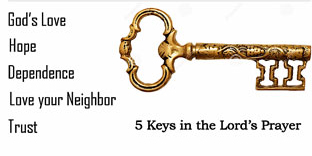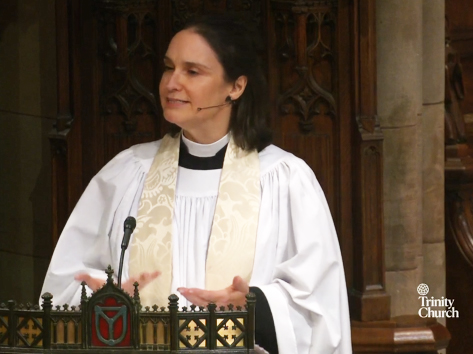Today (Aug 14) we remember and give thanks for the life of Jonathan Myrick Daniels. Jonathan appears in this book, Holy Women, Holy Men.
The people who live within the covers of this book are those whose lives and actions have pointed to God’s work and God’s glory in this world.
Bishop Shannon has asked the churches in the Diocese of Virginia to remember Jonathan on this day, to bring Jonathan out from his resting place in this book into our midst, to be alive once again with us, to speak with us, and to challenge us to be people of compassion in the unique ways that God calls to each of us to be.
Jonathan is considered a martyr since he died seeking justice for black people in Alabama who did not have the right to vote. Fifty years ago now, in 1965, as a young seminarian from Keene, NH, studying at the Episcopal Theological School in Cambridge, MA, he answered Dr Martin Luther King’s call for people from all over the nation to come to Selma to help secure voting rights for all the citizens of that state. In August of that year, Jonathan Daniels was shot to death on the steps of a small store in Hayneville, AL, protecting a seventeen year old black girl, Ruby Sales, from the shot that would have taken her life had Jonathan not taken the shot himself.
What I found out, as I learned more about his story, was that the selfless action that resulted in his death was the natural culmination of his life which had been shaped by acts of compassion.
Saints come from all walks of life, and the circumstances of their lives vary, but all of them have one thing in common.
They are all people of compassion.
What exactly is compassion?
Karen Armstrong, in her book, Twelve Steps to a Compassionate Life, says that “’compassion’ derives from the Latin patiri and the Greek pathein, meaning ‘to suffer, undergo, or experience.’ So ‘compassion’ means ‘to endure [something] with another person,’ to put ourselves in somebody else’s shoes, to feel his or her pain as though it were our own, and to enter generously into his or her point of view. That is why compassion is aptly summed up in the Golden Rule, which asks us to look into our own hearts, discover what gives us pain, and then refuse, under any circumstance whatsoever, to inflict that pain on anybody else.”
What I found fascinating about Jonathan’s story is not that he went to Selma, like so many others did after witnessing the brutality of the police against peaceful protesters, and heeding Dr King’s request, but that once there, Jonathan realized that if his life was to make a difference in the civil rights movement that he must stay, to share in the day to day lives of the black people who were second class citizens, without rights and without respect, simply because they were black.
And so he stayed in Alabama. He continued his seminary studies on his own while living with black families in the area and working to document the abject poverty of the region and to press for equal rights for all people. He went back to the seminary in May, took his exams, and then returned to Alabama , against the wishes of his friends and his family, to continue his work.
Luckily for us, he wrote regularly in a journal, because we have a great deal of his story in his own words.
Jonathan wrote in his journal about the hatred and disgust he felt for the people carrying the guns and the tear gas and the water hoses that they used against the protesters. But as time went on, Jonathan realized that he could not carry this hatred for those on the other side.
Here’s his entry about the day his feelings about “the enemy” began to change.
“I think it was when I got tear gassed leading a march in Camden (AL), that I began to change. I saw that the men who came at me were themselves not free. Even though they were white and hateful and my enemy they were human beings too. I began to discover a new freedom in the cross, freedom to love the enemy and in that freedom to live and to try to set him free.”
Jonathan was experiencing compassion for the enemy, to feel the enemy’s pain, to enter into the enemy’s point of view, and to realize that the enemy was held prisoner by fear and hatred, and being driven by these fears into violence toward the enemy—the enemy, according to Karen Armstrong—being “something or someone that seems to threaten your survival and everything you stand for.”
How do we become people of compassion?
In writing about how to develop compassion in our lives, Karen Armstrong suggests the following course of action when it comes to dealing with our enemies—and we can see how Jonathan’s life was shaped into one of compassion by these very things.
The first thing we must do is to acknowledge our hatred and “our profound reluctance to turn an enemy into a friend.”
The next step is “to try to make an impartial, fair-minded assessment of the situation in the cause of peace…to try to wish for your enemy’s well –being and happiness; to try to develop a sense of responsibility for your enemy’s pain.”
“Once you realize that your enemy is suffering, you look into his own eyes and see a mirror image of your own distress….and then you realize that he too deserves compassion.” You then direct your friendship, compassion and sympathetic joy toward that person—and we Christians do that in prayer. “Pray for those who despitefully use you,” Jesus said. “Love your enemies.”
I know this plan sounds impossible.
But it works.
Have you ever hated someone or something because of something they’ve done to wrong you?
Maybe you find that you spend more and more time wrapped up in those hateful thoughts. You wish for revenge. Or maybe you try to protect yourself from ever getting hurt that way again. And before you know it, your whole life is run by and revolves around that person or thing that you hate.
I can vouch for the fact that the alternative that Karen Armstrong (and Jesus before her!) suggests really works when it comes to developing compassion for the enemy.
“Start where you are, with your own feelings of hatred. And then, as hard as it will be, pray for that person’s happiness.”
I’ve done this—I can tell you that over a period of time, that prayer for my enemy’s well being and happiness brings me great freedom. That prayer helps God to give me the freedom to love that person, to leave that person to God, and to direct my energy toward doing God’s work in the world for God’s glory, rather than being bound up in hate and hungering for violence.
Remember what Jesus said as he was being nailed to the cross?
“Forgive them, Father, for they do not know what they are doing.”
When we live with compassion, we become vulnerable because we are wide open to our enemy. That’s why most of us cannot believe that we can live this way. It’s just too scary.
And sure enough, people who live this way, in freedom from hatred, often end up dying as they work for justice in the world–Jesus, for starters, and in our own time and memories, Dr Martin Luther King and Jonathan Daniels.
Jonathan had this to say about this freedom from hatred. “I had realized that as a Christian, as a soldier of the cross, I was totally free, at least free to give my life if that had to be, with joy and thankfulness and eagerness for the kingdom no longer hidden from my blind eyes.”
The results of Daniels’ death were far reaching and led to a reshaping of the national legal and political landscape.
The jury system across the South changed after an all white male jury acquitted Jonathan’s murderer and he went free. A series of affirmative action lawsuits meant that in courtrooms across the South, men and women of all races got to serve on juries, which meant the opportunity for more impartial verdicts.
Eventually, voting rights were extended to all Americans.
As Senator John Lewis from South Carolina puts it, Jonathan’s life and death helped not just to redeem the soul of Alabama, but also helped to redeem the soul of the nation.
Fifty years later, we still have so far to go, but today we give thanks that as Americans we have come so far.
But we can go further.
Probably none of us will end up in a book like Holy Women, Holy Men, or enshrined as a “Modern Martyr” in Canterbury Cathedral, but we can all attempt to live lives of faithful compassion, even and especially for our enemies. This is God’s calling for each and every one of us.
Jonathan leaves us with a challenge today.
“The more I got involved I knew I must try and witness to the gospel in the quest for a just society. We too may set our faces to go to Jerusalem, as he has gone before us. We go to preach good news to the poor and to proclaim release to the captives and the recovering of sight to the blind, to set at liberty those who are oppressed, to proclaim the acceptable year of the Lord. We go to stand with the captive and the blind and the oppressed. We go in active non-resistance, not to confront, but to love and to heal and to free.”
“We go in active non-resistance, not to confront, but to love and to heal and to free.”
When we undertake such a journey of love, we too, can grow into the compassionate people that God calls us to be.
Amen.
Resources:
Holy Women, Holy Men . “Jonathan Myrick Daniels: Seminarian and Martyr, 1965,” pages 52-527. Copyright 2010, Church Pension Fund.
https://vimeo.com/14117023 “Here Am I, Send Me. The Story of Jonathan Daniels.
Armstrong, Karen. Twelve Steps to a Compassionate Life. New York: Alfred A. Knopf, 2011.









